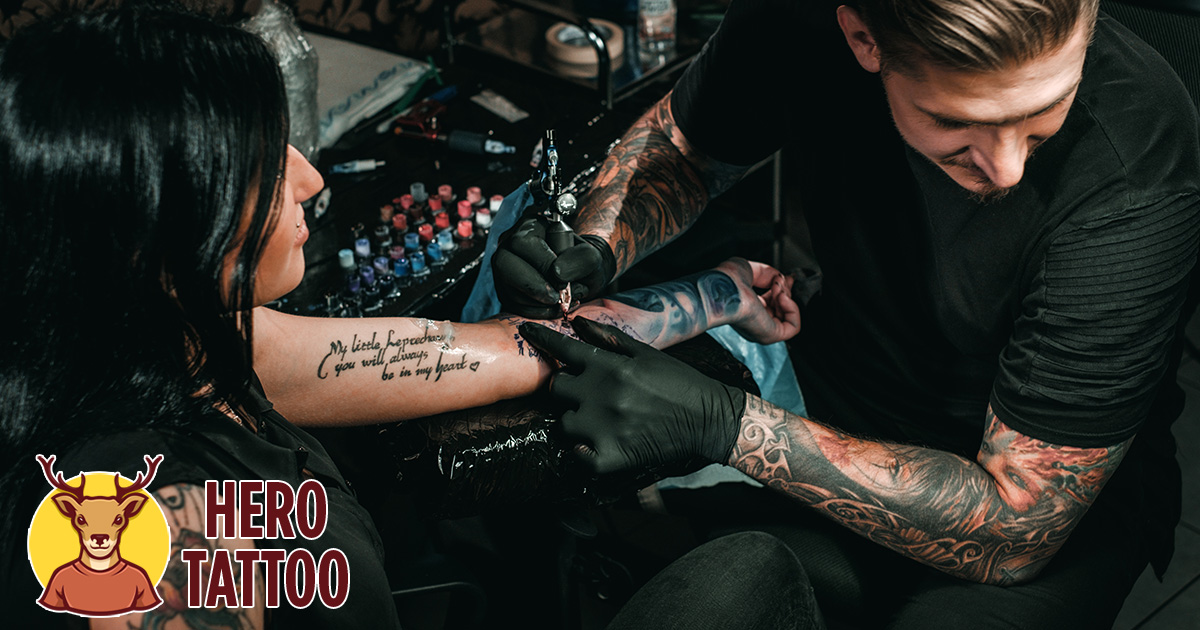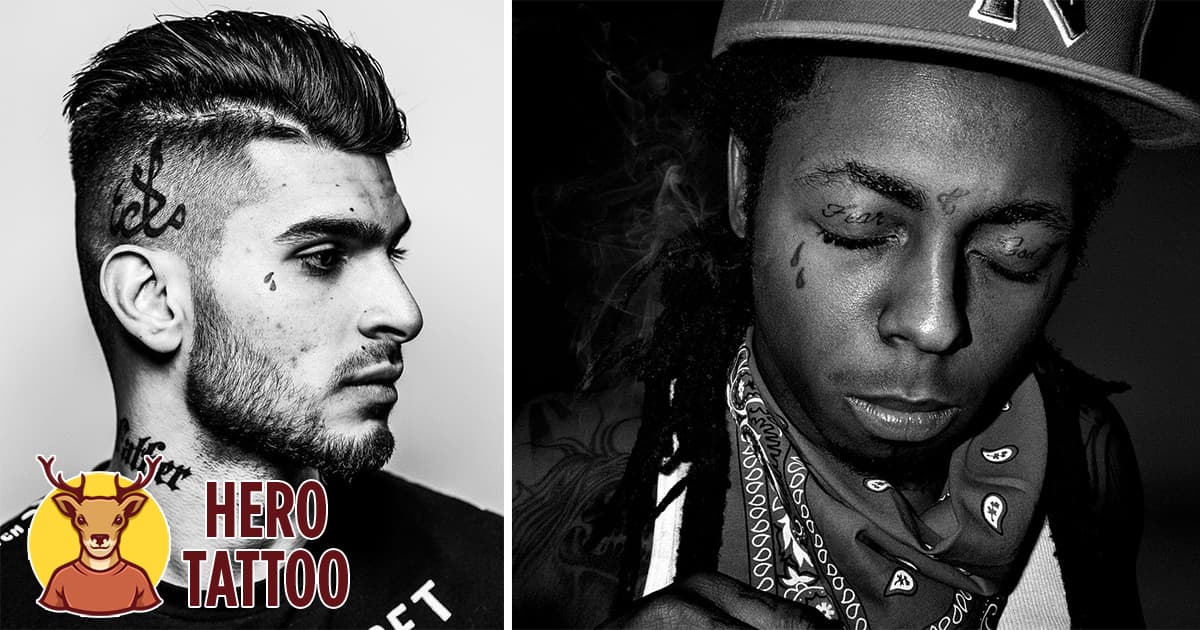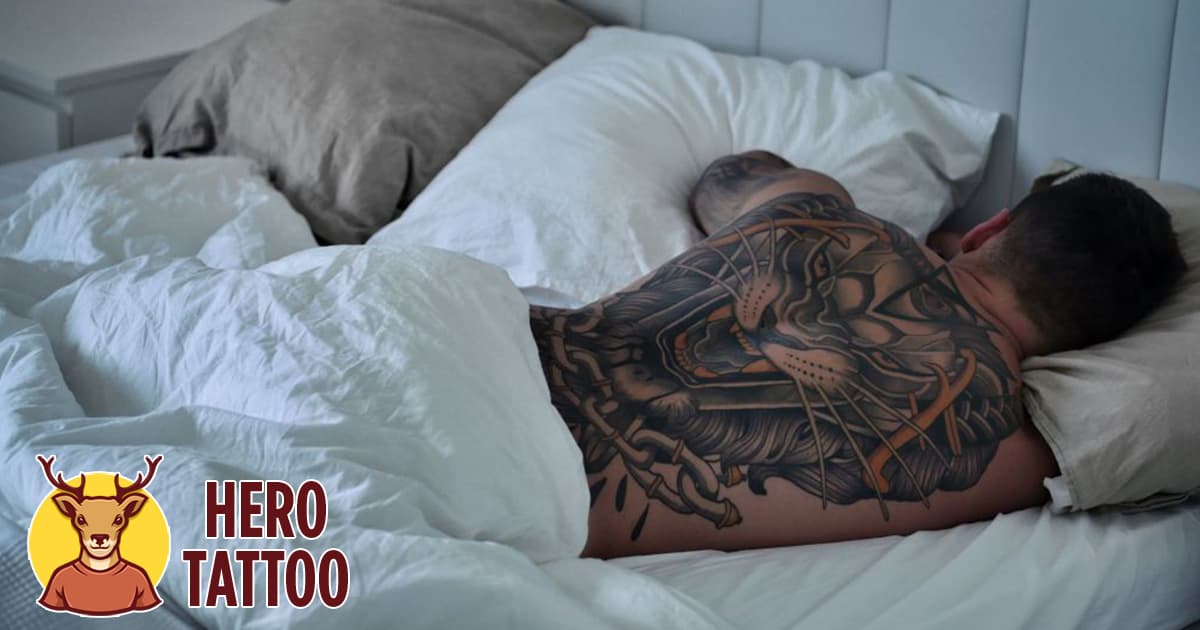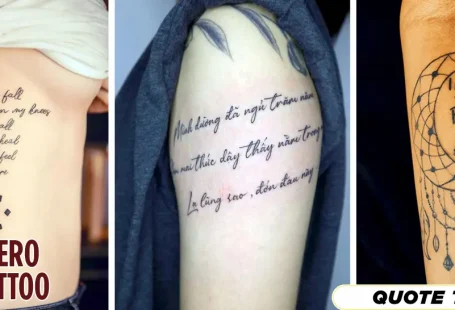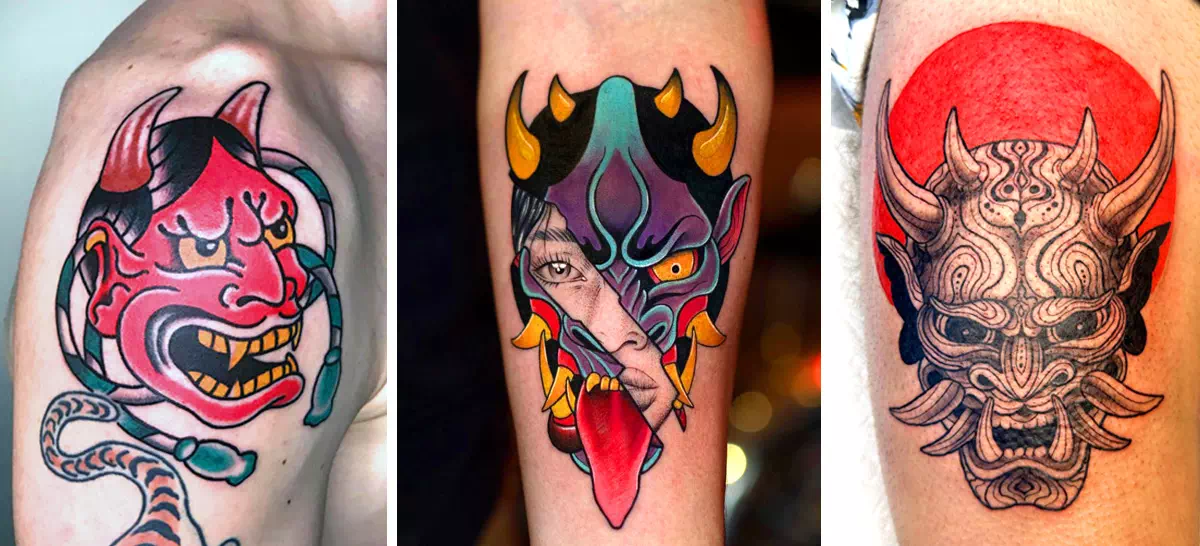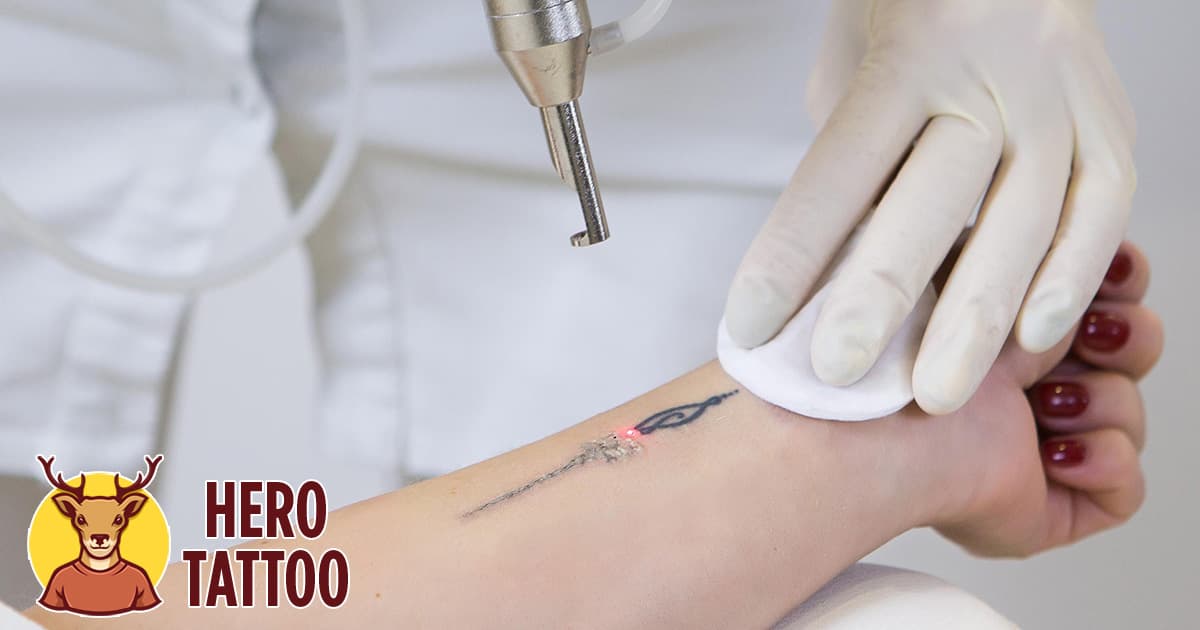Even though tattoos have grown very accepted and prevalent in today’s culture, there are still some places and circumstances where they are deemed inappropriate.
Tattoos can cause a slew of issues for average individuals who desire to work in various businesses or divisions of the economy. Why?
Tattoos are often associated with criminal activity and undesirable behavior. Thus, they must be kept hidden in the workplace to avoid stigmatization.
On the other hand, some vocations and careers are open to those who have tattoos. Tattoos are accepted as a form of self-expression in various occupations, and in some cases, they are encouraged. So, if you’re looking for work and you have some amazing tattoos that you don’t want to keep hidden, you’ve come to the ideal location.
Listed below are some of the most remarkable careers for those who have tattoos, which we’ll go over in further detail. It is not necessary to cover up your tattoos for these positions, nor are they connected with something negative in any way. As a result, let’s get started on the list!
Work in occupations and industries that accept tattoos

1. Sport Jobs
If you enjoy sports, you might want to pursue a tattooing profession because many sporting activities do not frown upon tattooing. Athletes and sports fans take excellent care of their bodies, so there is no need to see tattoos as a symptom of a lack of respect and self-respect, as some would have us believe.
Sporting occupations that permit tattoos include football players or managers, basketball players and managers, sports event organizers and managers, club or team managers, sports analysts and commentators, and any other sport-related positions.
For athletes, we must point out that some sports, such as Olympic sports, do not allow visible tattoos, so keep this in mind if you plan on competing. Tattoos are not prohibited, although it is preferable if athletes do not have visible tattoos during important events and contests, such as the Olympics.
2. Physical Jobs
When we refer to physical occupations, we refer to jobs that demand physical labour away from direct clients. Tattoos are not regarded as hazardous in such employment since they need physical strength and a sense of responsibility. These achievements demonstrate the ability to self-express, deal with pain, and overcome obstacles.
Firefighters, bouncers, plumbers, loggers, machinists, military-related employment, forest rangers, gardeners, lifeguards, warehouse employees, construction workers, crane operators, and so on are examples of such occupations.
3. Artistic or Art-Related Jobs
Tattoos and body art of any form are the most welcome invocations linked to the arts and crafts. The open-mindedness of the artistic community is unmatched in the world. Even if you are not naturally creative, you may find employment in an environment where your creativity, in any form, will be valued and acknowledged.
Your tattoos and the way you display them will not be an issue at all; in fact, they will most likely enhance your creativity and sense of self-expression.
Some art-related jobs that you could pursue include photography writing or poetry, makeup art, game developer or designer (including fashion designing), music (including playing the piano, singing, and writing), dancing or dance teaching (including choreography), artistry (painting, drawing, and other mediums), architecture, acting, and voice acting, among others.
4. Medicine-Related Jobs
Finding a doctor or nurse willing to work with tattoos might be challenging. Tissue tattoos have been a source of significant debate in the medical world for many years. Despite this, it appears that more people are becoming accepting of physicians or nurses who have visible tattoos.
However, this does not imply that you may suddenly proudly display your tattoos at your place of employment. However, certain positions in the medical field do not object to tattoos as much as we might assume.
General medical practitioners, professors of medicine, military medicine, dentistry, radiology, veterinarians, animal medicine (breeding, grooming, training, and treating), nurses (in some cases), anaesthesiologists, substance abuse counsellors, paramedics, and other related positions are examples of this type of work environment.
The same cannot be said for every medical community or institution, therefore before applying for a position, double-check the hospital’s body art-related policies before using.
5. Customer Service Jobs
To put it mildly, customer service positions aren’t exactly the most hospitable places for tattoos to be found. You must deliver specific services to clients in situations when the initial impression is critical. Nevertheless, distinctive customer service positions do not involve direct contact with customers. They are more relaxed and permit tattoos and other forms of body art.
Customer service at speciality stores, contact centre operator/customer support, hairstyling, restaurant work, cafe barrister, remote employment, virtual tutor, waiter, seamstress, and other related positions are examples of this type of labour.
6. IT Jobs
The information technology sector is one of the most self-sufficient in the world. The pandemic of 2020 did not affect the IT sector in most countries, not even for a single day. On top of that, the information technology business is one of the most accepting of all types of people, including those with tattoos. Nobody in the IT industry cares about your body art; all they care about is that you are performing a fantastic computer and tech job. That sounds delicious.
Then there are jobs like computer programming, web development, network engineering, system analysis, IT support. Even if you’re not familiar with the IT industry, you can work as a quality assurance tester (you’ll be testing software and hardware of specific products or apps for customer experience, so you don’t have to be knowledgeable in IT).
7. Other Jobs
For occupations not explicitly related to tattoos, we may state that attitudes about tattoos in the workplace vary from one company to the next. You should look into the following employment prospects if you’re having trouble finding work in your field due to your tattoos, and the occupations listed above aren’t a possibility for you.
Many different jobs are available, such as private investigator, masseuse, nutritionist, housecleaner, plumbing technician and laboratory technician. Other options include mining, personal training and engineering. Other options include dishwashing in a restaurant, business ownership, fishing, carpentering and cooking, as well as beekeeping and beekeeping equipment maintenance and repair.
4 Things You Should Know About Tattoos and Your Job
1. Why Do Tattoos Matter In Employment?
As you may be aware, work possibilities for persons who have visible tattoos might be rare at times. The rationale for this is based on preconceived notions that a person has a criminal record or is otherwise troublesome just because they have body art on their body. That is highly discriminatory, yet it is generally accepted in most positions and sectors. Tattoos are still tricky and uncertain for many work chances, even though they are becoming more common.
Tattoos in the workplace are problematic, in our opinion, for the following reasons:
- Their actions may have a detrimental impact on people’s first impressions.
- The initial belief they provide clients may cause them to abandon their plans.
- They may cause you to be perceived as less trustworthy.
- People may presume you have a troublesome and criminal record depending on your past.
- Individuals may consider your tattoos to be offensive or aggressive.
For the reasons stated above, we must underline that consumers and clients frequently express a preference for non-tattooed personnel and employees who do not have tattoos. On the other hand, customers or clients may not even be aware of the tattoos or may even want to work with a tattooed service provider in some situations. According to the data, tattoos appear to be perceived differently by different people in the workplace.
2. Can Someone Really Not Hire You Because of Your Tattoos?
Unfortunately, companies have the right to refuse to hire you if you have visible tattoos, especially if you refuse to conceal them (or if covering them is challenging to do).
According to the Constitution, no one should be discriminated against or denied employment based on their appearance, gender, age, nationality, or other characteristics. However, nationally and by US employment legislation, your rights in that regard are not protected in any way. The decision on whether or not to recruit you is solely in the hands of the employer.
So, let’s say your employer concludes that your tattoos are likely to drive customers/clients away, make them uncomfortable, or even disrespect them. It is within their rights to refuse to hire you or even terminate you in that situation. Employers are permitted to do so by their work policy, dress code, and workplace standards of conduct or behaviour.
3. What types of tattoos are not permitted in the work environment?
Even if you find a job that allows for body art, there are still certain restrictions on the types of tattoos you may display in front of clients and customers. Tattoos that are insulting or culturally appropriative, for example, are strictly prohibited at work and in any other environment.
If your tattoos have the potential to offend or make people uncomfortable, you should consider covering them up.
In other words, tattoos of a sexual nature, obscene and gruesome tattoos, tattoos that depict or promote violence of any kind, tattoos that depict or encourage blood, death, racist imagery, gang affiliations, offensive language, or curse words are not acceptable even in the most accepting of workplaces.
4. Which High-Paying Jobs Are Accepting Tattooed Employees?
Body art and tattoos are often considered the most restricting for those who work in high-paying positions. Although looks are significant in some industries, there are also high-paying positions where knowledge and ability are more important than physical attractiveness.
The following are examples of such positions:
- Scientist
- Researcher
- Fashion stylist and industry professional
- A footballer is someone who plays football.
- Website designer
- computer developer
- actor
- interior designer
- film editor
- dentist
- laboratory technician, etc.
For as long as your tattoos are appropriate and do not constitute an unpleasant or derogatory gesture in any manner, shape or form, you should have no trouble finding work in any of the places listed above.
Concluding Remarks
However, even though many people consider tattoos to be unpleasant at work, a growing number of individuals are adjusting their perspectives and becoming more accepting of body art. So don’t be concerned if you have visible tattoos. In one way or another, you’ll be able to locate decent work that matches your interests and abilities.
Of course, it will be a lot easier if you choose occupations that are already open to tattoos in the first instance. However, don’t let the fact that someone doesn’t like your tattoos deter you from continuing to do what you love. Do your thing, strive to be the greatest, and before long, people will only notice your tattoos for the right reasons, rather than the negative ones.
